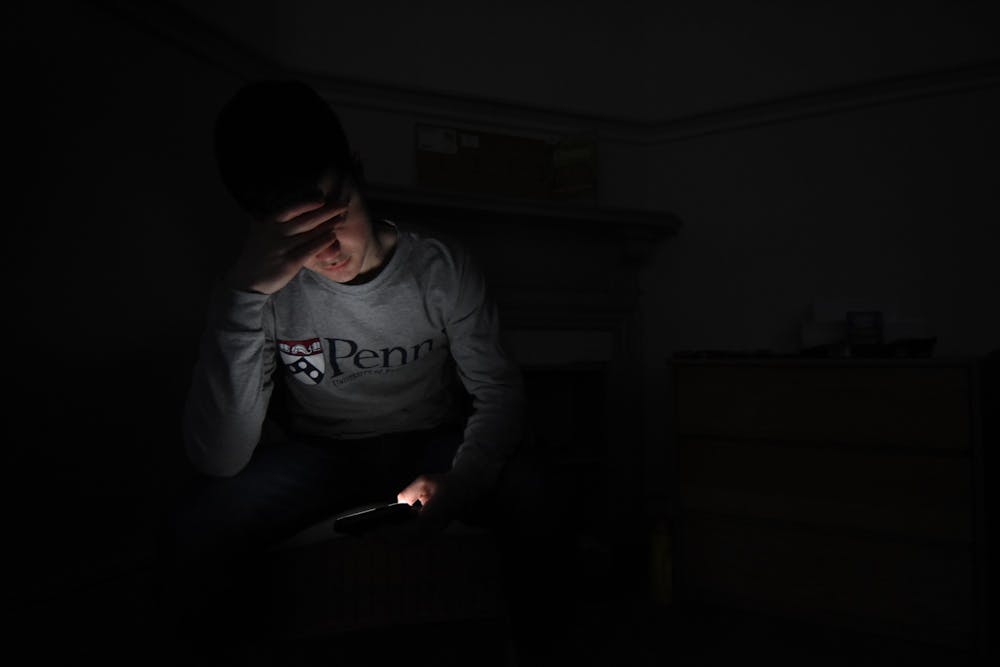
When I was accepted to Penn last March, I was completely floored. Penn is known for being the “Social Ivy” and was ranked as the number one party school by Playboy Magazine in 2014. I’m a chronic wallflower. Why did Penn’s admissions team think I belong here?
What caught my attention the most at Penn was the “Work Hard, Play Hard” trope. While I disagree with studying and partying to the point of burnout, I appreciate that Penn students strive to strike a balance between their academics and socialization, valuing both equally. Though the Ivy League name implies a lopsided, academics-oriented school culture, we’re much more than our classes and internships. We’re known for who we are outside of school, for our dedication to our hobbies, our friends, and yes, partying too. Considering my own social and extracurricular commitments, which often equal or overtake my academic duties, perhaps I do belong here after all.
And yet, since the onset of the pandemic, Penn has transitioned to a culture of work hard and … what else, exactly? In classic Penn style, several students have treated the pandemic as an opportunity to load up on courses, but many others have reported considerable academic stress over the past year, with some opting to take this term off. Meanwhile, Penn has done little to improve conditions. Fall break was scrapped, and Penn only allotted more days off in the spring after student government took action. Though Penn has made it easier to pass/fail courses, a passive-aggressive email discouraged using this option.
The mental health of Penn students was far from perfect before the pandemic, in part because of Penn’s social culture. Daily Pennsylvanian Opinion columnists have criticized Penn’s “Play Hard” mentality for growing FOMO, loneliness, and escapism, and I don’t think they’re wrong. Everyone feels sad and alone at times, whether they meet dozens of peers a day or hardly interact with anyone, and we should work towards an environment where these feelings are normalized, rather than drinking away our emotions at parties or hiding them behind Penn Face.
That said, we cannot ignore Penn’s social culture pre-COVID-19 and say that Penn is absolutely better off without it. With the pandemic soon coming to a close, we have the opportunity to revamp this culture, to embrace the social nature of our student body in a way that improves mental health instead of degrading it. When Penn’s administration does not address our social nature, we all suffer for it.
Consider the beginning of this spring term. COVID-19 positivity rates were higher than at any other Ivy, and there were strong links to Greek life and first years' social events. While this behavior is inexcusable, we must acknowledge that it’s related to being socially isolated for nearly a year. When Penn threatened a level three campus alert that would essentially reintroduce the Quiet Period guidelines, it felt like they were missing the whole point. Instead of removing in-person social interaction altogether, Penn’s administration should have committed to making this in-person interaction safer, through more designated outdoor spaces and organized activities. Because let’s admit it: Zoom calls don’t compare to real, face-to-face interactions. It’s easy to feel like the health risk of these interactions is outweighed by the social benefit.
On the flip side, following Penn’s Social Compact to a T results in little to no social interaction, leaving students susceptible to pandemic loneliness. Penn has taken some action on this front. For instance, the peer counseling group Penn Benjamins reported an increase in turnout this semester, and Penn is providing its community with premium subscriptions to Wellnest, a mindfulness app. Though this support is helpful, it does not address the root of the problem.
All of us have made sacrifices, both big and small, during this pandemic. I’m not saying that we should stop being COVID-19-safe. But this term, with more students on campus, Penn has the opportunity to do more for student social life than half-hearted Zoom events and initiatives. Penn should seize it.
This “Spring Stay,” Penn sent out an email to all students, detailing free outdoor activities and excursions that we could sign up for. Within minutes, every trip’s time slots had sold out on Eventbrite. Clearly, there’s demand for COVID-19-safe activities, and Penn should act on it. As we hold more events, we can start to return to the social culture we’ve lost.
A lack of social interaction is just one of the contributors to Penn’s mental health crisis, but it is also one of the easiest to solve. If Penn can organize these events for Spring Stay, there is no reason that they cannot become a regular occurrence until May, or even after this pandemic. There is no reason that we cannot pool Penn’s collective resources and ingenuity into restoring Penn’s social nature.
CAROLINE MAGDOLEN is a College and Engineering first year studying systems engineering and environmental science from New York City, N.Y. Her email address is magdolen@sas.upenn.edu.
The Daily Pennsylvanian is an independent, student-run newspaper. Please consider making a donation to support the coverage that shapes the University. Your generosity ensures a future of strong journalism at Penn.
Donate




